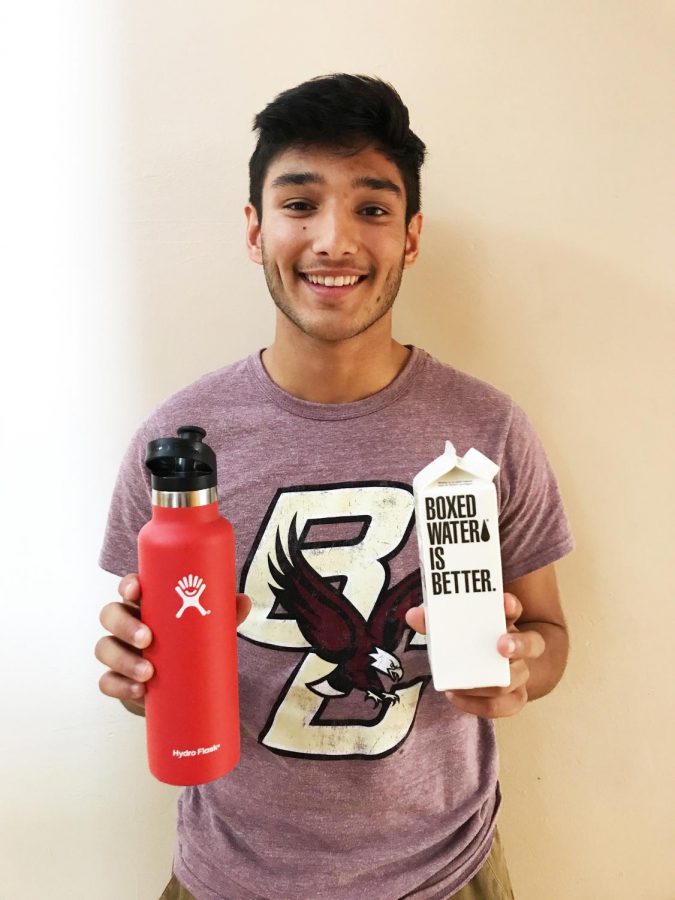Pelham School District Institutes ‘No Plastic’ Policy
Senior Philip Dulock makes the move from single-use plastic bottles to a metal thermos and boxed water.
October 5, 2019
At the start of this school year, students, faculty, and staff saw changes in the cafeteria. Rows of plastic water bottles were replaced by non-plastic containers of the liquid by the company Boxed Water Is Better. In an effort to make the school district more sustainable, boxed water creates less waste than plastic bottles, which go on to harm our environment.
At the end of last school year, Superintendent Champ and Principal Clark met with three representatives from each grade in the middle and high school. Dr. Champ was inspired by schools in the Westchester area that started taking steps to become more sustainable. The students were able to give their input regarding the issue of plastic pollution and the school’s proposal to eliminate plastic water bottles.
“I believe boxed water is an acceptable substitute for plastic water bottles, however, I hope that as a school we will soon no longer have a need for the purchase of single-use water bottles if we all make an effort to bring a reusable water bottle,” junior Jack Dougherty, who attended the meeting in June, said.
According to the Boxed Water Is Better website, 8.8 million metric tons of plastic enters our oceans every year. This is equivalent to a garbage truck full of plastic being dumped into the ocean every minute. These plastics are then broken down into microplastics that harm marine animals, which are then ingested by humans through fish and water. The annual production of plastic is currently about 311 million metric tons, but will grow to 33 billion by 2050 if the projected path of use continues.
Dr. Champ said, “It [sustainability] is an investment in the future. We have one Earth, and if we ruin it, we don’t have a backup plan! It’s important for us to be stewards of the earth, every little bit that we can do is important to help us now and certainly future generations.”
The new boxed water costs a steep $3 in price for each purchase, in comparison to the price of a plastic bottle at $1. However, this price increase was not made without thought. Around the school there are many water fountains with bottle-refilling stations. These can be used to refill the boxed water containers as well as students’ reusable water bottles. Dr. Champ says that she hopes this increase in price encourages students to stop buying the single-use bottles all together and start to bring in a reusable water bottle. Buying a reusable water bottle may be more advantageous financially, but buying a water bottle everyday can add up, when students could be using the school’s refilling stations.
Boxed Water Is Better agrees.
“Let’s be honest, refillable is the best solution. But in a world where 69 billion plastic bottles are produced every year people need a convenient option. We’re a BETTER single-use option,” they say on their website.
Although there are still other drinks, like Gatorade, sold in plastic bottles, the district is looking into ways to cut our waste as much as possible. This includes partnering with a company who will take all of the food scraps off site from each of the six schools to compost it. Benefits of composting include reducing the district’s landfill contribution, taking kitchen waste and creating rich soil, and saving water. The utensils in the cafeteria are now compostable as well. Though they are not being composted right now, in this upcoming partnership they soon will be. In addition, the school will be adding garbage receptacles that match what is being thrown in them so no extra sorting is necessary in order to reduce waste in that process. These new initiatives taken by the district put Pelham schools on track to becoming more sustainable.




